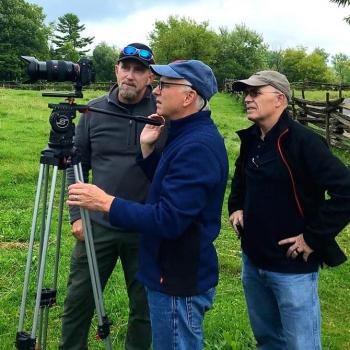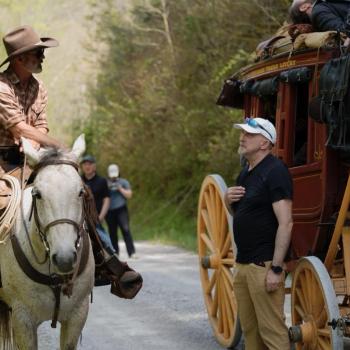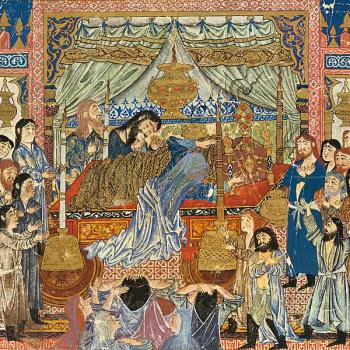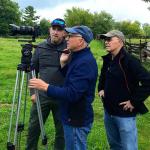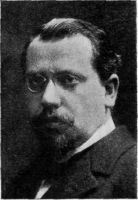
One of the sessions that we attended today focused on “Authority in Islam.”
I was most interested in a paper by Johannes Rosenbaum, a young German scholar who recently finished his doctoral dissertation. He focused on contemporary Muslim “advice manuals” from South Asia (essentially India/Pakistan)—written by Islamic clerics but also, sometimes, by physicians—as a window into contemporary Islamic thinking on marriage. It’s an interesting and fresh approach, at least in my experience. He is right in pointing out that Western scholarship has heretofore focused too exclusively on what he calls “mountain crest” or “elite” sources such as treatises on jurisprudence and fatwa compilations. He reports that these manuals talk surprisingly much—it would be surprising, anyway, to people who stereotype Islam as hateful and oppressive—about empathy, love, emotional compatibility, compassion, and how to maintain a happy marriage. Some are apologetic, arguing (for instance) for such things as the health benefits of regular ritual ablutions. Some even draw upon the writings of Western psychologists and marriage counselors.
Gritt Klinkhammer presented some of the results of her collaborator’s fieldwork among male Salafi Muslims living in a particular (unnamed) northern German city. (Her colleague had taken suddenly ill, and was unable to attend the conference.) She contrasted Christian conversion narratives, which often involve a crisis of meaning and sometimes even a vision or other spiritual experience, with the conversion stories told by her informants, which, she said, focus more on the gaining of knowledge and the quest for autonomy, self-discipline, and empowerment. The converts with whom her project has spoken like the clarity of the rules given by Islam. “For me,” said one of those interviewed, “this religion was not a buffet.” They didn’t want a “soft” religion, but one with “fixed rules,” “a strong/fixed position” (festen Standpunkt). They sought “self-conquest” (Selbstüberwindung). One interesting question: Several of the informants grew up without a father. Are they looking for an authority figure, for something stable? (There was some brief discussion about whether that idea constitutes “overpsychologizing.”)
Afterwards, for a bit of a change of pace (and for a larger room with more space and cooler air), we attended a session on Mordecai Kaplan (1881-1983) and his “Reconstructionist Judaism”—essentially an atheistic/naturalistic view of Judaism heavily influenced by John Dewey.
Posted from Erfurt, Germany



